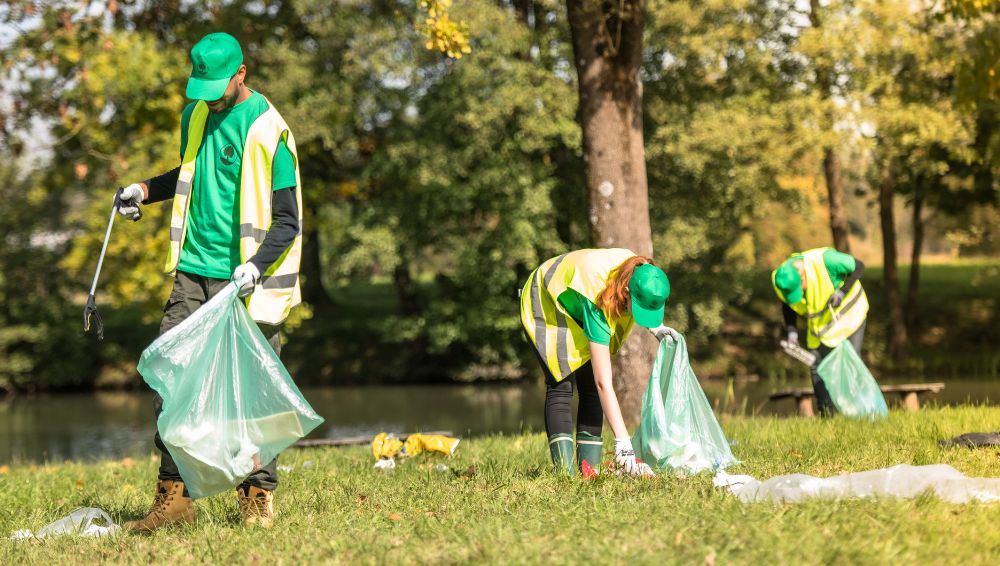Social Benefits of Waste Management refers to a range of methods and approaches utilized to minimize the detrimental environmental effects of waste disposal.
This involves decreasing the volume of waste generated, reusing and recycling materials, and composting organic waste.
Adopting sustainable waste management practices can facilitate businesses and communities to generate economic and social advantages.
In this blog, we are going to share with you What are the Social Benefits of Waste Management? So, keep reading this blog at the end!
Improved Environmental Health
The primary goal of waste management is to minimize pollution and the presence of harmful chemicals, making it an essential objective.
Through the practice of material reuse, the demand for fresh resources can be diminished, resulting in environmental preservation by lessening the adverse effects of resource extraction.
Promoting sustainable waste management doesn’t just help the environment—it can also boost community health by making the air and water cleaner and healthier!
Economic Gains
Effective management of waste not only contributes to a cleaner environment but also presents exciting prospects for economic advancement. Embracing proper waste management techniques can lead to the emergence of groundbreaking solutions tailored to the specific needs of our communities.
By implementing effective waste management practices, local authorities can witness a substantial increase in their revenue through taxes, thereby allowing them to invest more in crucial community services and infrastructure.
Moreover, when businesses prioritize the reduction, reuse, and recycling of waste, they not only demonstrate their commitment to sustainability but also create a ripple effect in the form of increased job opportunities within the vicinity.
This not only bolsters the local economy but also fosters a stronger sense of community involvement and responsibility.
Furthermore, the integration of sustainable waste management practices can foster a symbiotic relationship between businesses and local suppliers.
By favoring locally produced and recycled materials, companies can directly contribute to the growth and stability of the neighboring businesses, ensuring a more resilient and interconnected local economy.
As a result, the entire community benefits from a more robust and sustainable economic framework built on the pillars of responsible waste management.

Money Savings

Improved your Community Engagement
Encouraging waste management practices can lead to increased community involvement.
This can be achieved through providing better access to recycling and composting resources, educating citizens about sustainable practices, and promoting participation in green initiatives.
Positive Social Impacts
Waste management can bring about positive social impacts, such as increased civic pride, a better quality of life, and a more equal distribution of resources.
Improved air and water quality can significantly enhance the well-being of citizens.
Additionally, by using resources more efficiently, waste management practices can help distribute resources more equitably, ultimately helping to reduce poverty.
Clean Park Grounds

Financial Benefits
Using smart waste management methods can save businesses a lot of money. Not only does it help keep the environment healthier, but it can also give companies perks like tax breaks and even grants.
Local governments really want businesses to start using eco-friendly ways to reduce waste. They’re offering cool tax breaks and other rewards to encourage them.
Plus, businesses that show they’re serious about managing waste sustainably might even get grants. These grants can help them make it easier to use eco-friendly practices in their day-to-day work.

Frequently Asked Questions:
What are the social impacts of waste management?
In summary, waste doesn’t vanish into thin air; instead, it is taken to landfills that are typically situated in economically disadvantaged areas, where the residents have to bear the brunt of its consequences.
This not only affects the quality of our air and water, but also has an adverse impact on our health, property values, and investments in critical infrastructure and educational institutions.
What are the 4 benefits of waste management?
Effective waste disposal practices can contribute to the improvement of air and water quality while also reducing greenhouse gas emissions.
By minimizing the need for extracting new resources, waste removal can help decrease pollution and energy consumption associated with the manufacturing of new materials.
What is the social impact of recycling?
Companies that embrace eco-friendly practices and incorporate recycled materials are better positioned to build relationships and grow their presence in communities that value recycling.
By reducing the number of landfills, property values can improve, and communities can take concrete steps to address global warming.
How does poor waste management affect the impacts on society?
Improper handling of waste is causing harm to the oceans by contaminating them, blocking drains, and causing floods.
It also leads to the spread of diseases and respiratory issues from burning waste. The consumption of waste by animals is affecting their health and, ultimately, their survival. Furthermore, it is hindering economic development.
How is waste a social issue?
Environmental inequality and exploitation based on class and race are amplified on a global level by the global waste trade.
Vulnerable communities, that did not produce the waste, are the ones who suffer the negative impacts such as contamination, pollution, and health hazards. The issue of waste trade can be viewed as an issue of colonialism.
Conclusion
In conclusion, adopting waste management practices can provide numerous benefits for businesses and communities. These benefits include lowering costs, improving environmental quality, stimulating economic growth, fostering community engagement, reducing waste disposal expenses, optimizing resource use, and enhancing health and safety.
Additionally, sustainable waste management can have positive social impacts and lead to financial gains, such as tax breaks, incentives, and grants.
By embracing these sustainable waste management practices, businesses and communities can save money, protect the environment, and create economic and social opportunities.
Implementing these practices also contributes to a more sustainable and resilient future for our communities and businesses.


